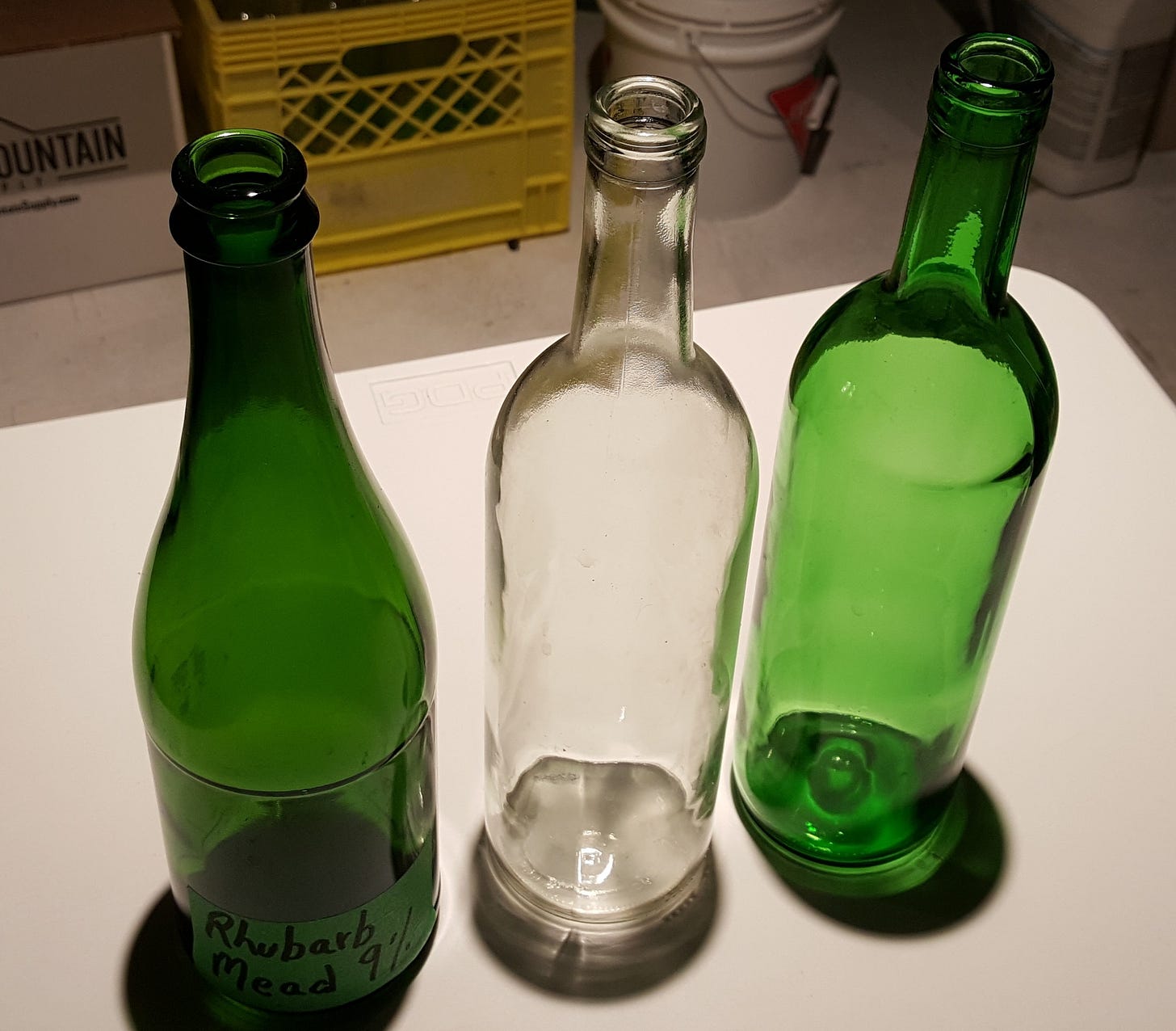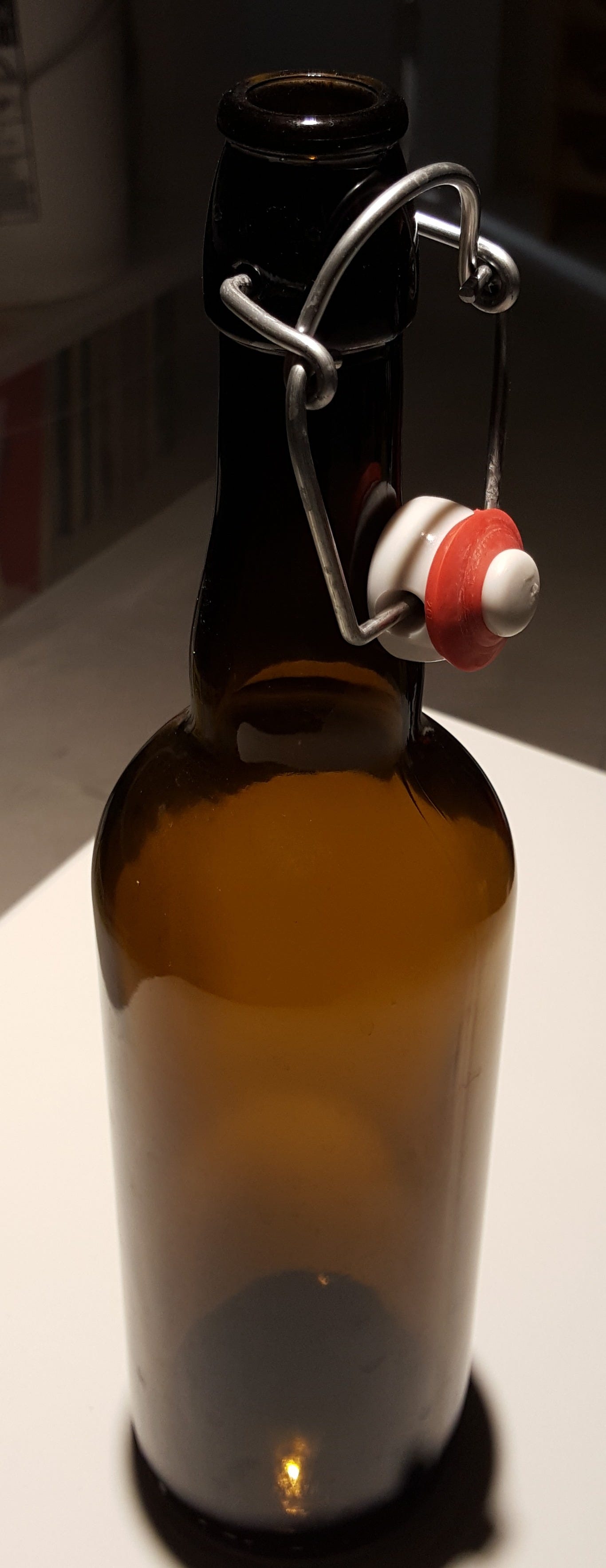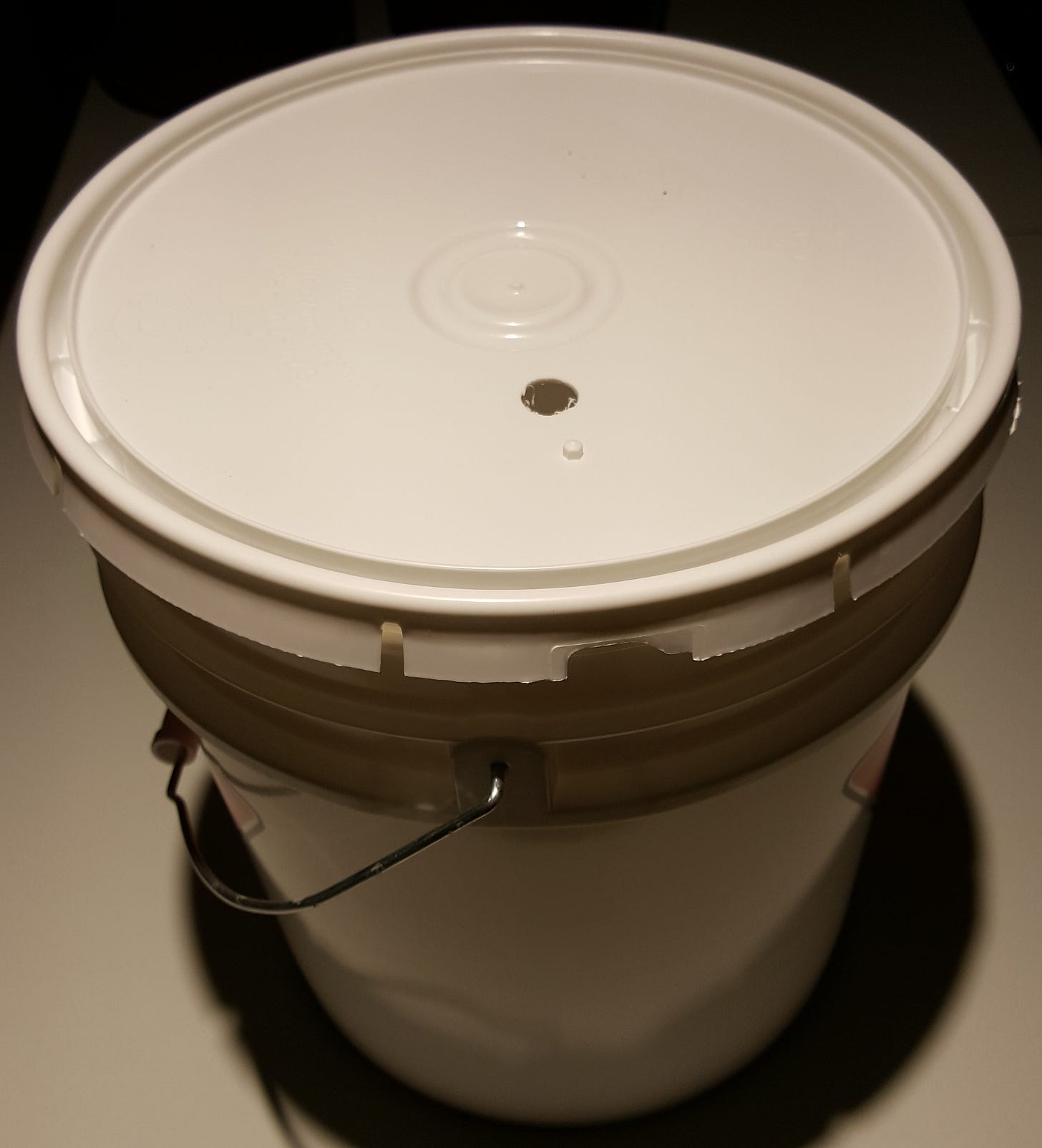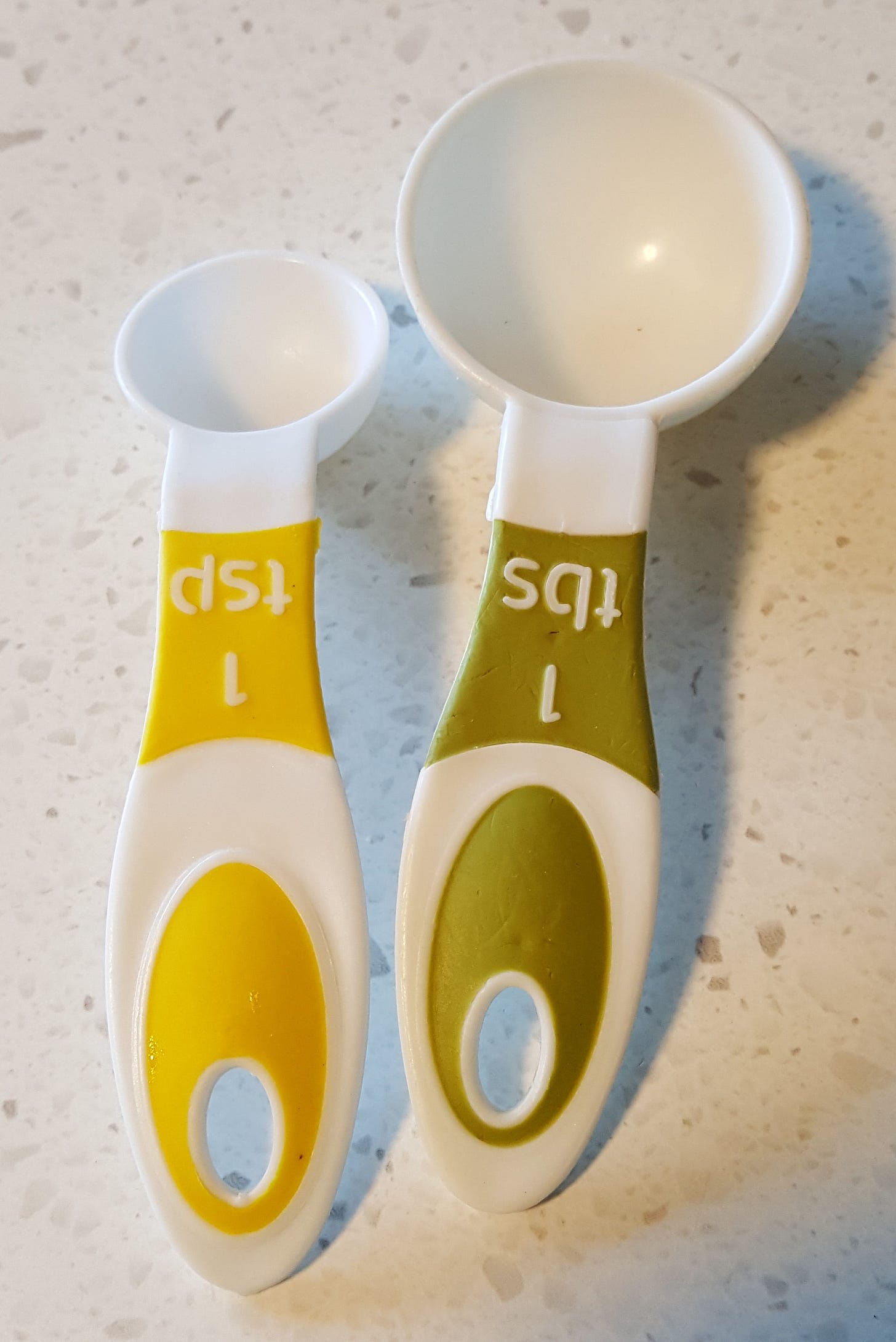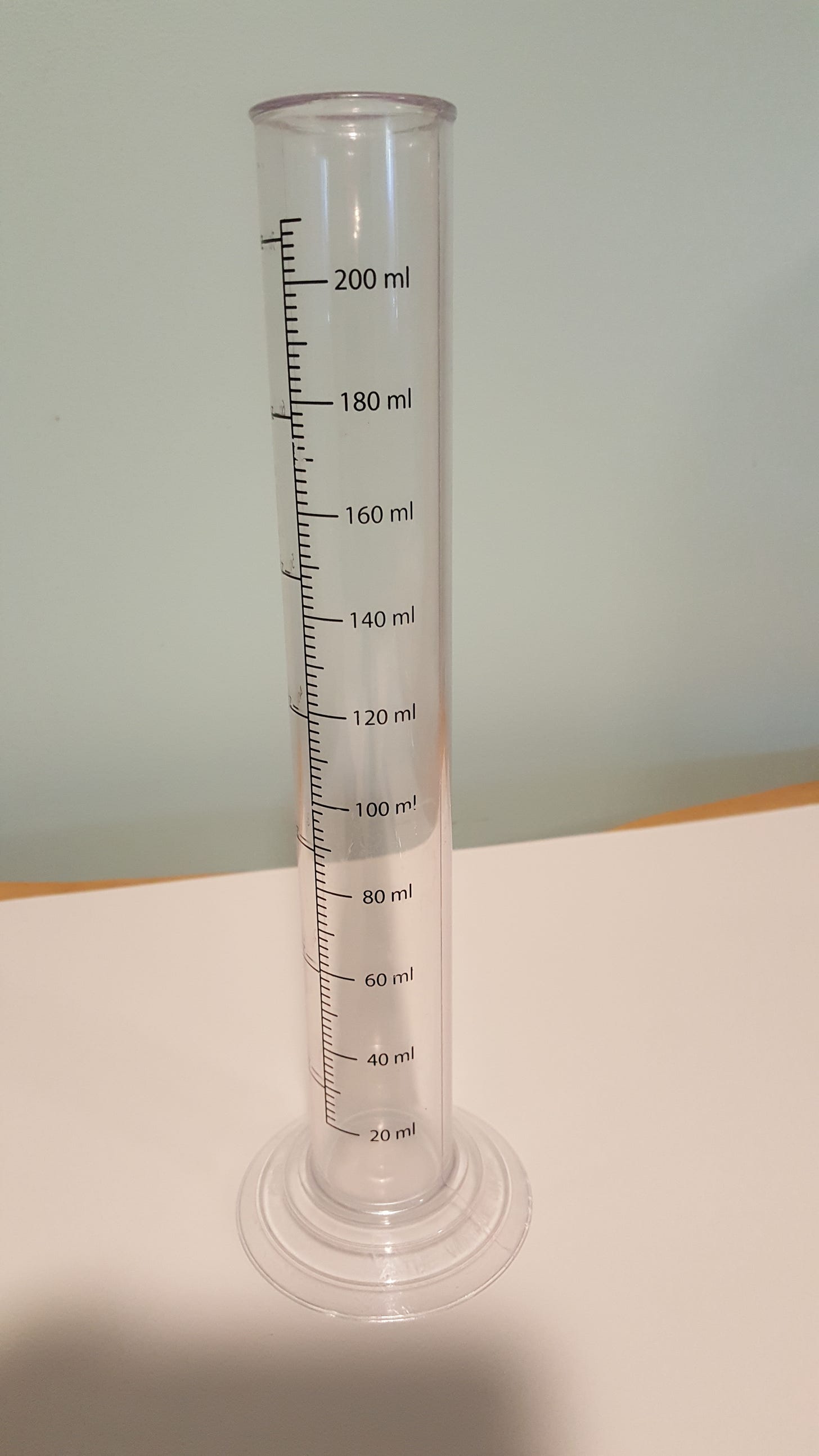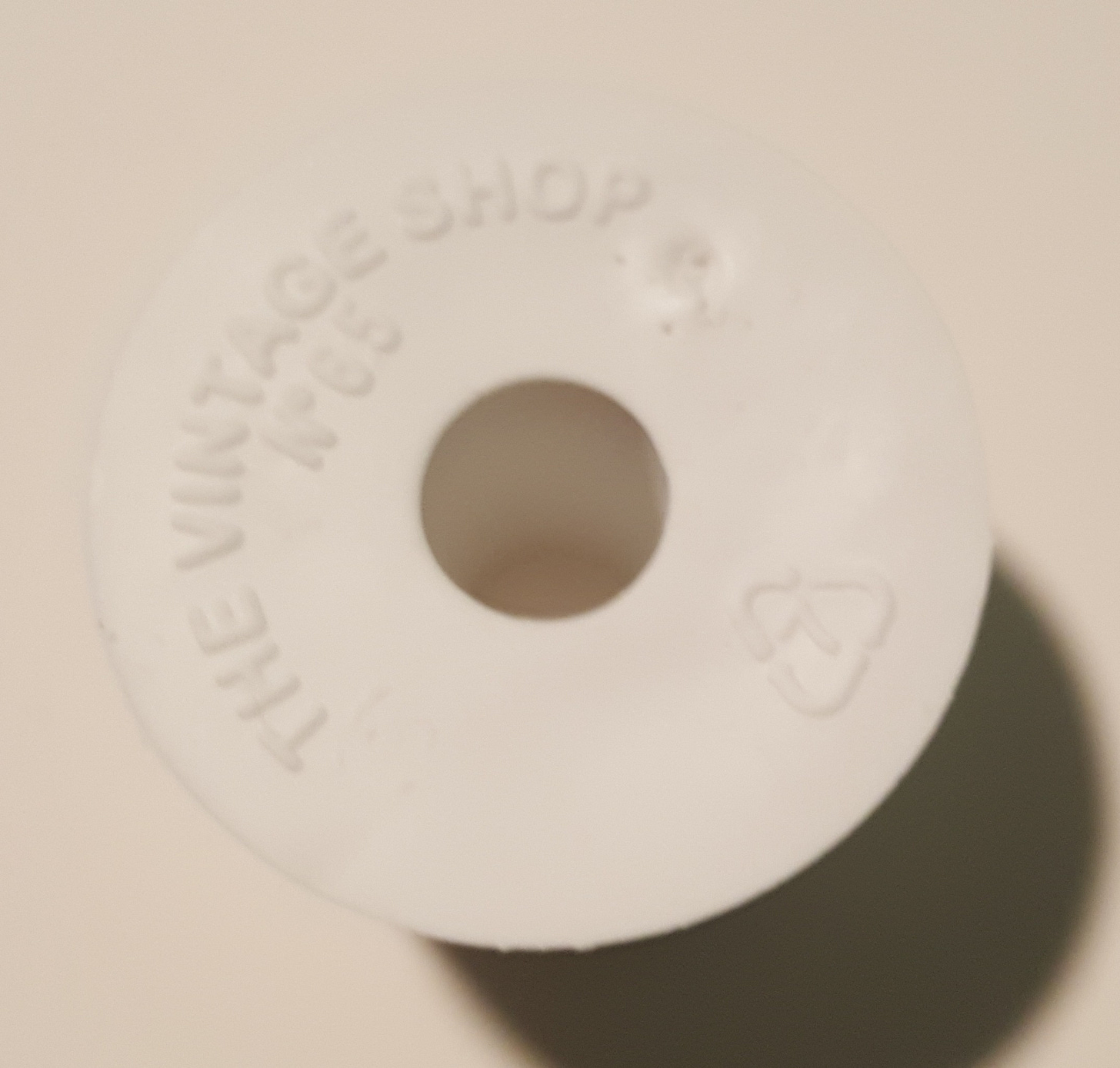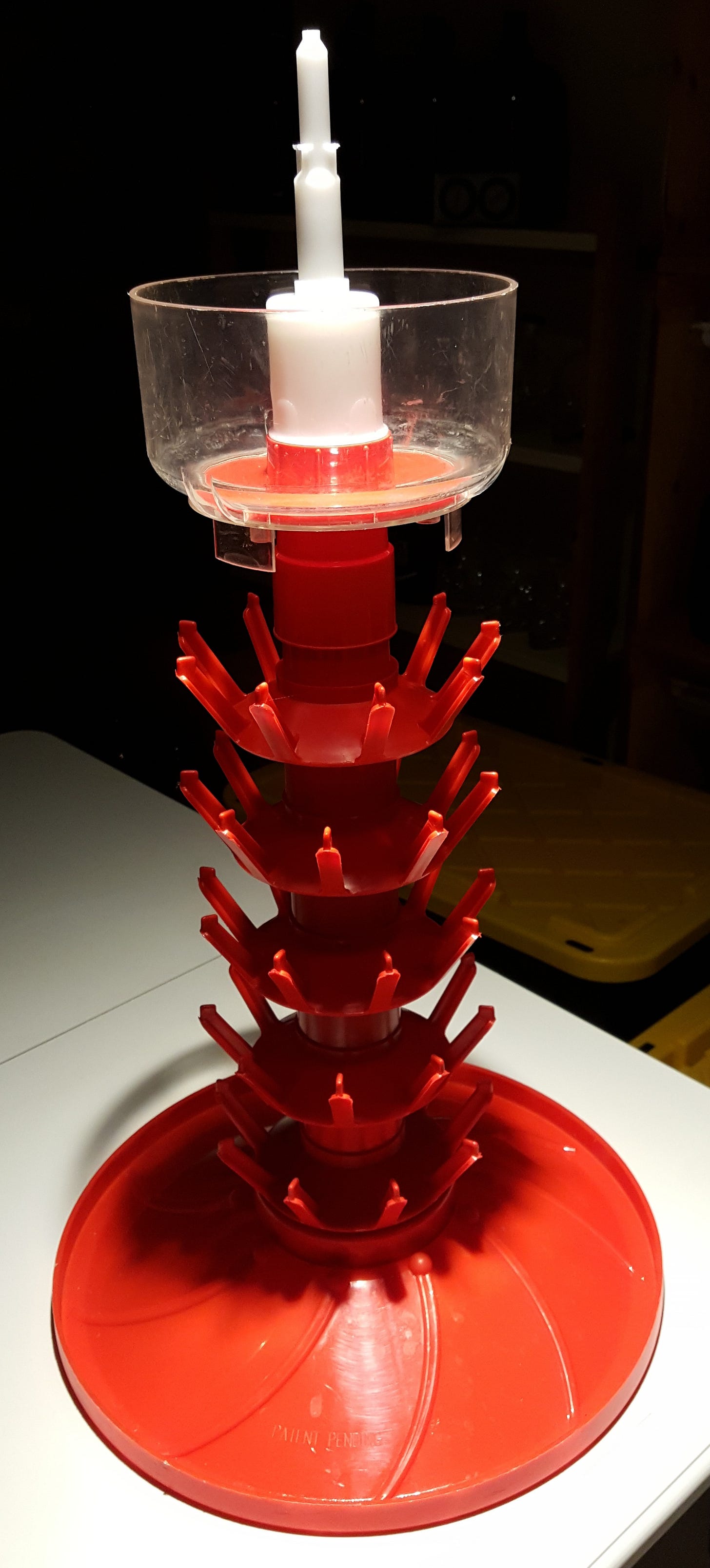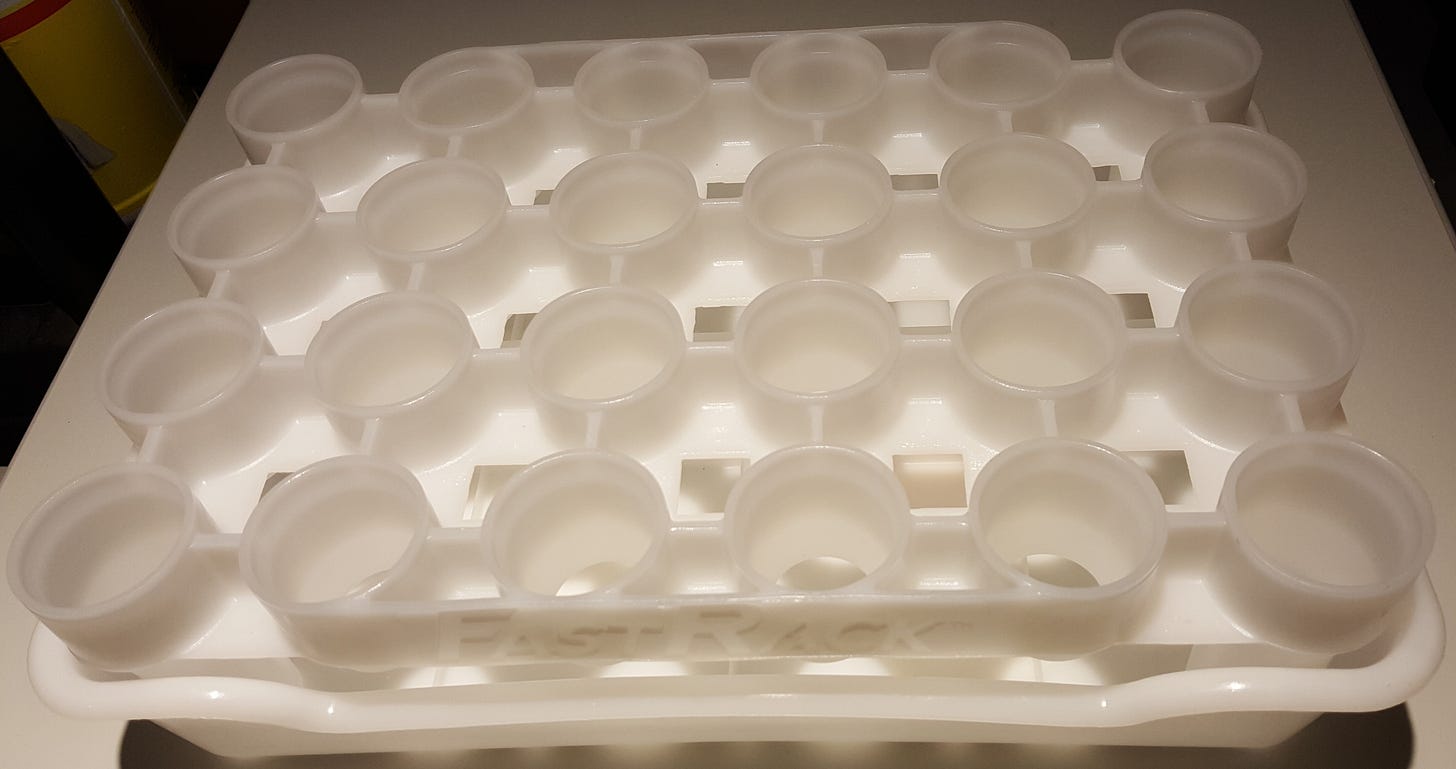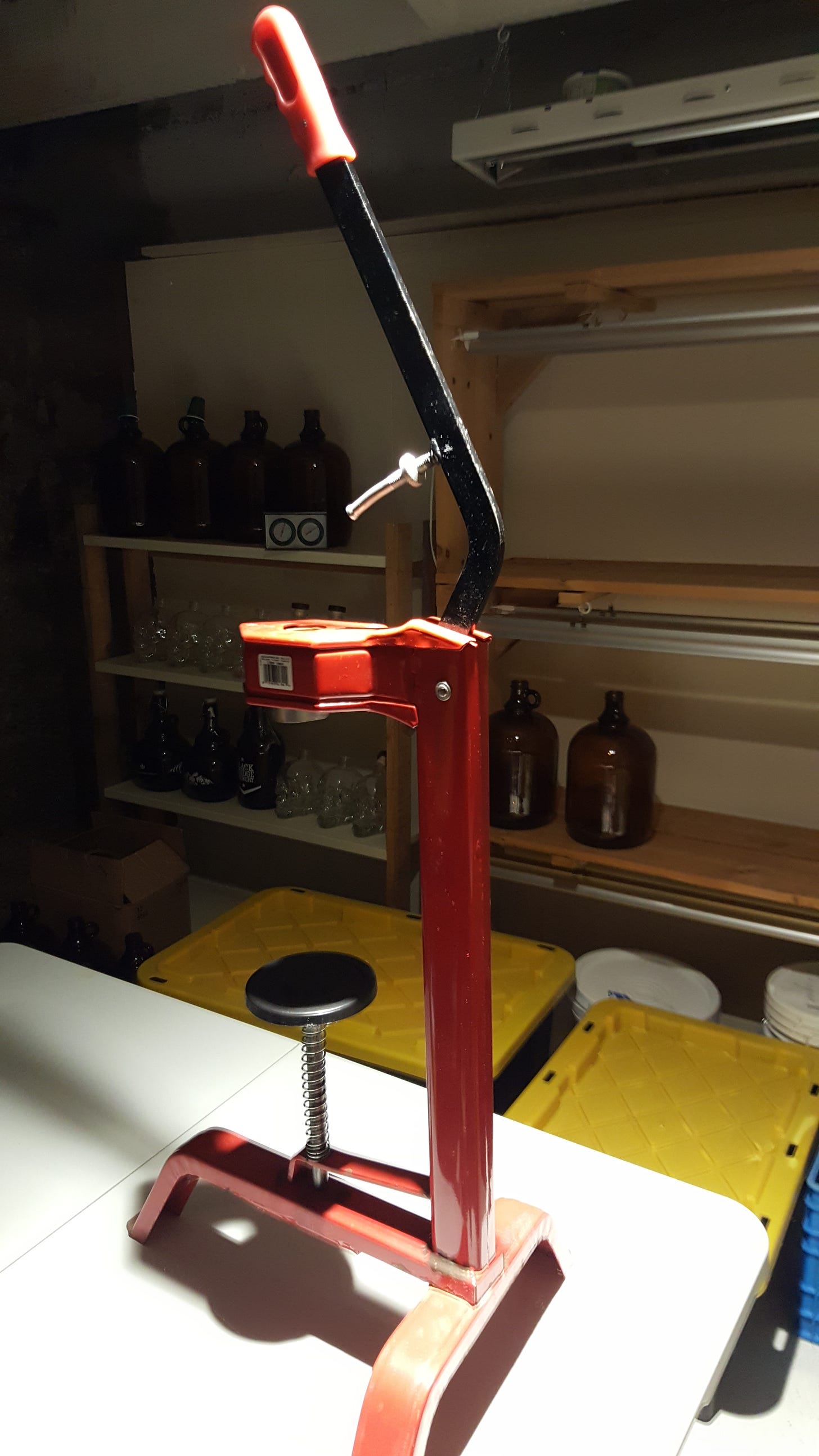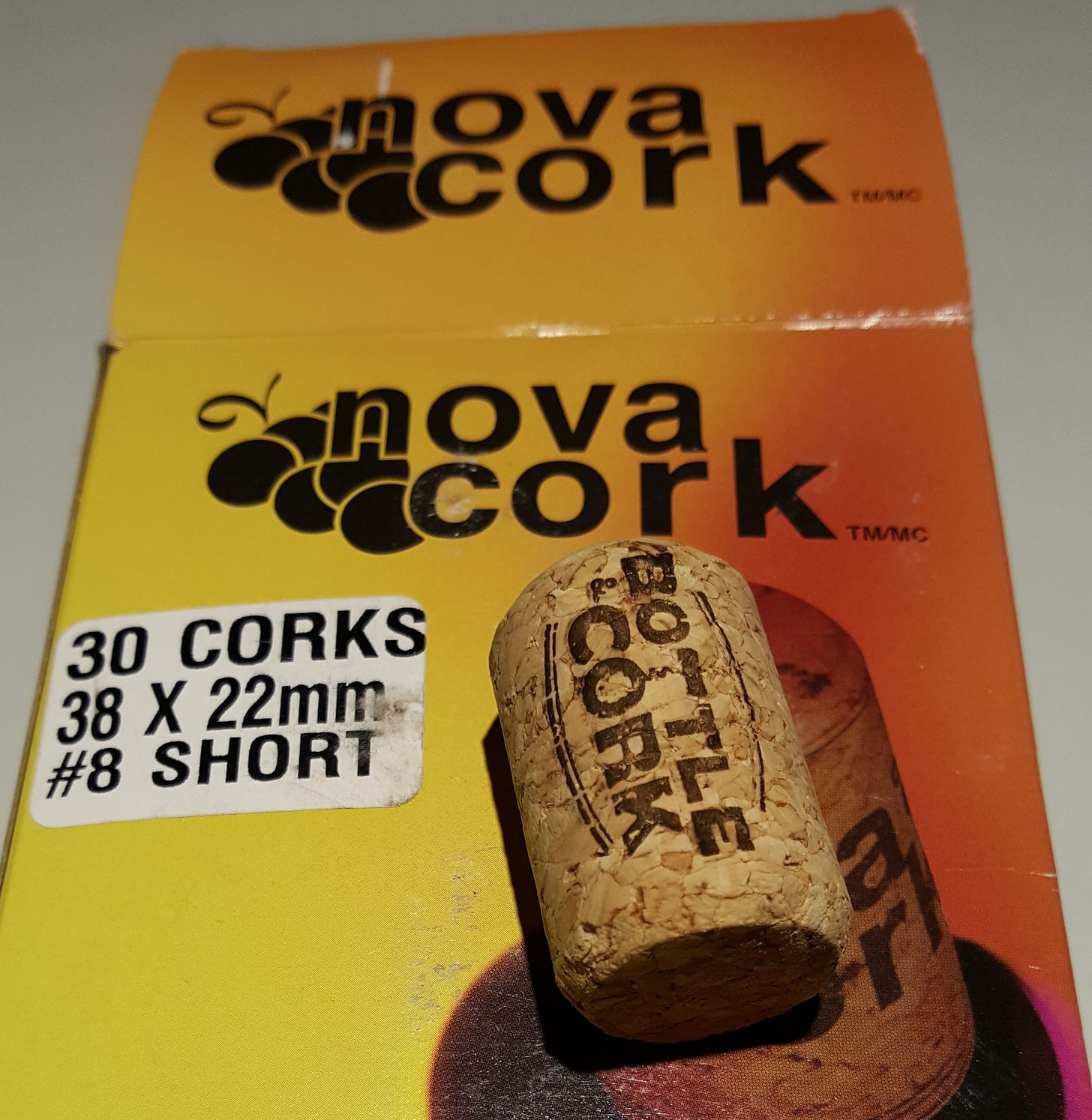This list outlines equipment that I have found useful in making small batches of wine and mead at home.
Glass Wine Bottles - used
I have never purchased wine bottles new. If you are patient, used bottles usually become available locally, throughout the year, as hobbyists sell out. I will post how to clean & sanitize bottles in a separate document
Glass Beer Bottles - New
If you are planning on doing some in-bottle carbonation, it is a good idea to purchase beer or champagne bottles that are manufactured to withstand pressure from carbonation. Here are some flip-top beer bottles I purchased new
Kitchen Scale:
I like to weight large freezer bags full of fruit, which may be as heavy as 3kg. Recommended to buy with a capacity of 5kg (10lbs) and accuracy of .1g Small batches require small quantities (gram levels) so accuracy matters. If you are on a limited budget, this is the one item you will want to prioritize.
Plastic food grade pail:
Common sizes are a 2 gallon (gal) pail for 1 gal (4 liter) batches, and 5 gallon pail for batches larger than 1 gal. If you are using recycled pails ensure they are suitable for food use.
Here is a link to a short article on how to determine if a plastic pail is suitable for food production:
The lids on 5 gallon pails do not always seal properly. Check to see that the lid is equipped with a gasket to ensure a tight seal. That will keep fruit flies and potential contamination out, and force co2 gas out through the airlock.
If necessary drill a 1/2 inch hole to place a rubber grommet and airlock.
Airlock or Mason Jar Lid Grommets:
Purpose of the grommet is to seal the lid hole in place for the airlock. They may be made out of rubber or silicone. They are usually listed as mason jar lid grommets or airlock grommets.
Fermentation Airlock:
I prefer the S shaped airlocks. Their advantage is that they have a smaller chamber so you can more closely observe the CO2 rising and therefore the rate of fermentation. Disadvantage is that they are harder to clean. At the time of this posting these retail locally for $2.50. Amazon.ca pack of 10 equal to $1.60 each not including shipping
Measuring Cups:
They usually come in sets. I find the 1 liter size is used the most.
Measuring spoons
Slotted Spoon (large):
I prefer stainless steel, which is more durable, heavier and easier to clean & sanitize
Hydrometer with 250ml cylinder
These sell for around 12$ on amazon.ca You can get a set including a measuring cylinder, hydrometer etc. around $22.
Turkey Baster or Wine Thief
-are used to withdraw a sample and transfer into a cylinder for measuring the specific gravity with a hydrometer. A wine thief withdraws a sample into a cylinder which you can put a hydrometer into for a quick read. I do not have one.
Glass Carboy
The most common size is 5 gallon. You may be able to find smaller carboys or jugs such as 1 gallon. They are quite expensive and it is possible to find used items at garage sale and local advertisers. If you buy used put them through a deep clean and sanitation cycle
pre-drilled rubber stopper
I use No. 65 stoppers for 1 gal jugs and No. 7 for 5 gal carboys
Auto siphon
These are so useful and help prevent contamination from the mouth siphon method. They make it possible to siphon wine into bottles by yourself and enable a one person operation. The 1/2" acrylic tube fits a 7/16“ (11mm) outer diameter plastic tubing
They come in 15 and 24 inch lengths. The 24” length is important if you plan on using 5 gal carboys. These retail on amazon.ca for around $17 with a small section of tubing thrown in.
Siphon tube - food grade plastic
Embossed print on the tubing indicates the national sanitation foundation code and food grade status. Usually sold by the foot. I use a 6’ tube which is long enough to siphon from a 5 gallon carboy if you are using an auto siphon
NSF-51 is the standard for “Plastic Material and Components used in Food Equipment”, and deals with materials and products used in contact with foods and beverages.” NSF stands for national sanitation foundation
Bottle drying tree and rinser/sanitizer
These are not essential but very useful. Look to find a used one in local advertisers, and garage sales. The rinser/sanitizer sits on top of the tree. You can take it off and use it to sanitize bottles. I find it to be very effective at spraying pre-mixed sanitizer into a bottle and reaching all sides. An alternative to the bottle tree, is a bottle drying tray.
Floor Corker
Wine Bottle Corks
Food Grade Pitcher
I find a 1 gal pitcher useful for transferring wine from a jug in order to de-gas, taste, and back sweeten, prior to bottling


